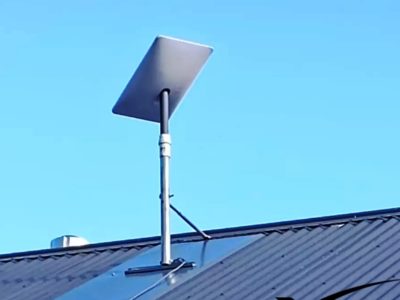By Anthony Emeka Nwosu, Aanuoluwa Omotosho and Tobi Opusunju
President of the Association of Telecoms Operators of Nigeria (ATCON), Olusola Teniola, has called for the creation of a Competition and Market Authority (CAMA), a competition czar across all sectors that will be required to address the issues of competition and other anomalies in the industry.
Teniola who spoke at the recent Businessday Media Broadband Summit that held in Lagos said Nigeria market despite successes in terms of growth is marked by distortions that may erode the gains of the industry.
Also in a chat with IT Edge News, the ATCON’s president said it had become expedient to have an “independent body that governs mergers and acquisition, unfair competition in markets and ensures pricing and consumer choices are treated independently of the Nigerian Communications Commission (NCC). This is the basis of CAMA – the Competition and Market Association in other jurisdictions.”
Teniola said it would be the duty of the competition and policy department inside the NCC to coordinate with an independent competition czar, so that issues of competition as they concern the telecom sector can be addressed independently by the competition czar.
Many stakeholders believe that the NCA Act 2003 and the Competition Practices Regulations addendum 2007 are blurred and do not reflect market realities with the industry dynamics.
House passes bill on Federal Competition Commission
Earlier in March this year, the House of Representatives deliberated on two bills on market competition and consumers’ rights. They include: “A Bill for an Act to Establish the Federal Competition Commission sponsored by Hon. Yakubu Dogara; and “A Bill for an Act to repeal the Consumer Protection Commission Act, Cap L25, LFN, 2004; and Establish the Federal Competition and Consumer Protection Commission and Competition and Consumer Protection Tribunal for the development and promotion of fair, efficient and competitive markets in Nigerian economy, facilitate access by all citizens to safe products, secure the protection of rights for all consumers in Nigeria, sponsored by Hon Uzoma Nkem-Abonta.”
The House eventually adopted the bill sponsored by Dogara to repeal the Consumer Protection Act and establish the Federal Competition and Consumer Protection Commission and Consumer Protection Tribunal.
Should the bill become a law, individuals who violate its terms are liable to a five-year jail term and a fine of N50 million; while. Corporate entities will pay fine not exceeding ten percent turnover in the preceding business year of their defaulting. The bill awaits the concurrence of the Senate and the assent of the President to become law.
Competition and Disruptors are reconfiguring the market
Besides, the increasing rise of OTTs and other disruptive technologies underscoring the dynamics of the industry requires a more proactive policy with regulatory approach that would not put operators under siege or make the country’s broadband goals unattainable.

Nigeria needs a surge of policy and institutional actions to leverage the benefits of the Nigerian Broadband Plan
While Nigeria had modeled its 2013 broadband policies and plans on a number of working practices in other jurisdictions with an open access approach to delivering the core objectives of affordable, high speed broadband services for broad economic growth, it had failed within the four years since the plans were passed “due to the failure to establish functional open access or public ownership models, or to continue to enable or encourage commercial operators to expand and upgrade their networks and services,” said Teniola quoting Fola Odufuwa, a research source on Africa’s telecommunications sector.
Teniola argued that Nigeria needs a surge of policy and institutional actions to fully address why operators are unable to leverage the benefits of the Nigerian Broadband Plan (NBP) and the huge potential for a broadband market. The existing frameworks for competition as they impact on operators and a mix of other challenges including multiple taxations and the rise of disruptors require fresh institutional approaches that would fully adjudicate from a competition perspective as is already the case in the United Kingdom. His words:
“The main outcomes and learnings is that most of the tenets of applicability already exists in the Nigerian Communications Act of 2003, however, may we be so bold to suggest that the time is right for a Competition Czar or Competition and Market Authority (CAMA) c.f. UK is now required to address the anomalies that prevails in the industry. This is one lesson that we all need to take seriously to ensure that our ambitious 2018 targets are met and are sustainable thereafter.
“Why? The recent launch of 4G technologies by new/late entrants and the eco-system created is now threatened by several factors:
“1.Competition issues (NCA 2003 – Competition Practices Regulations, 2007): Without a review of the data services provisioning market structure, there is a serious risk of market failure with the resultant ripple effect. Current evidence suggests that with inflation at 17%, input costs at a per unit per Mb level, that retail data prices available on the market are unsustainable even with economies of scale, hence a serious distortion exists that needs immediate regulatory intervention
“Multiple taxation: In Nigeria today, the telecommunications sector is faced with the challenge of multiple taxation. This is not helping the industry to grow as the sector is being taxed by all tiers of government and the direct resultant effect of this is any Profit After Tax (PAT) being eroded which does not encourage the direct investment needed in the country.”
Broadband goals undermined by operators over-taxed, over-stressed
According to the ATCON’s president, while operators are seeking to expand customer-specific and value-added services, such as combining connectivity with application services, to retain relevancy and protect against margin erosion, they are forced to contend with “very low incidence of 3G coverage across all parts of Nigeria; multiple regulation on the same infrastructure; long delays in the issuance of permits for new infrastructure; prohibitive charges to secure Right of Way; Under-utilized Right of Way by way of limited access; high incidence of vandalization of ICT infrastructure and severe power challenges for communication infrastructure.”
With the distortions in the market and operators appearing under siege, it would be impracticable to achieve the 2018 target for 30% broadband penetration with the ambitious goals to use broadband to deliver “good health, education, agricultural service, economic growth and cross-industry linkages as well as improving efficiency across sectors.
Broadband penetration in 2014 was 6%, 2015 was 10% and in 2016 was less than 16%, according to the NCC.





























